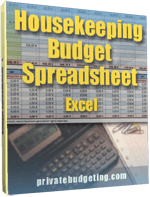Healthy Spending Habits
The few major purchases you'll typically spend your money on throughout your life can have as much an impact on your finances as the money you spend on little things. In fact, regularly spending money on non-essential purchases, such as coffee, eating out, ordering food or taxis, or technology gadgets will more likely have the biggest impact on your finances because these expenses usually go unnoticed and just build up naturally. As with most habits, it's not always easy to identify them, let alone change them. But it's possible.
1. Adapting your spending habits
No matter if you see yourself as a more traditional kind of person, who places high value in things like a car or a home, or as someone for whom possessions like these pose a commitment and who rather lives the moment, experiences things and enjoys going out, your goals, needs, dreams and responsibilites can change. Re-evaluating and adapting your spending habits can help to achieve the things that matter to you more effectively. Below you'll find a few ideas on how to tweak your spending habits. They might not all suit your lifestyle or personality, but changing even little things can have a positive impact on your life.2. Ways to tweak your spending habits
1.1. Budgeting
Creating a budget is an essential part of managing your money. A budget gives you an overview of your income and expenses over a set period of time. It's calculated and re-evaluated on a regular basis and allows you to make informed and strategic choices about how to best spend your money. This allows you to strategically direct your expenses and income to respond to your needs as they arise. There are different ways to budget and accomplish your goals.2.2. Don't be too hard on yourself
The best resolutins and budgeting tools won't work if you're too hard on yourself.No matter what your reasons for budgeting are, try not to be too hard on yourself while budgeting. when trying to stick to your monthly budget because there may come a time when you and your friends want to go the movies or buy a gift for a relative. You need to be a little flexible in your spending habits and allow yourself to spend a little. You’re young so don’t rob yourself from socialising with your chomas. Drawing up a budget is important but you need to include money for fun activities otherwise you’ll start to hate your budget and will most likely not stick to it.2.3. Monitor Spending
Creating a budget is often easier than sticking to it. You might plan to spend a given amount on entertainment and going out to eat, but your actual spending habits may deviate from your plans. Monitoring your spending habits by tracking account use and keeping receipts can help you determine whether you actually follow the budget you create. If your spending in certain areas exceeds your budget, reign in your spending or create a new budget that accounts for shifts in spending habits.2.4. Credit Card Use
Realise that using a credit card means using someone else's money. Borrowing money can be expensive because in most cases you have to pay interest on that money, on top of the original amount that you borrowed. Credit cards should only be used to facilitate payment and not as a means to borrow money. A healthy spending habit would be to pay for purchases with a checking account or cash, whenever you can, to avoid debt in the first place. If you feel the need to use a credit card, try to pay off your monthly credit card bills in full every month to avoid accumulation of interest and being in a debt trap.2.5. Buying things
Creating shopping lists before you go to the store and sticking strictly to the items on the list is a healthy spending habit that can prevent impulsive spending. Do not buy more than what you can afford. Do not to be lured into “want” items. If you must have it, save up gradually for it.

